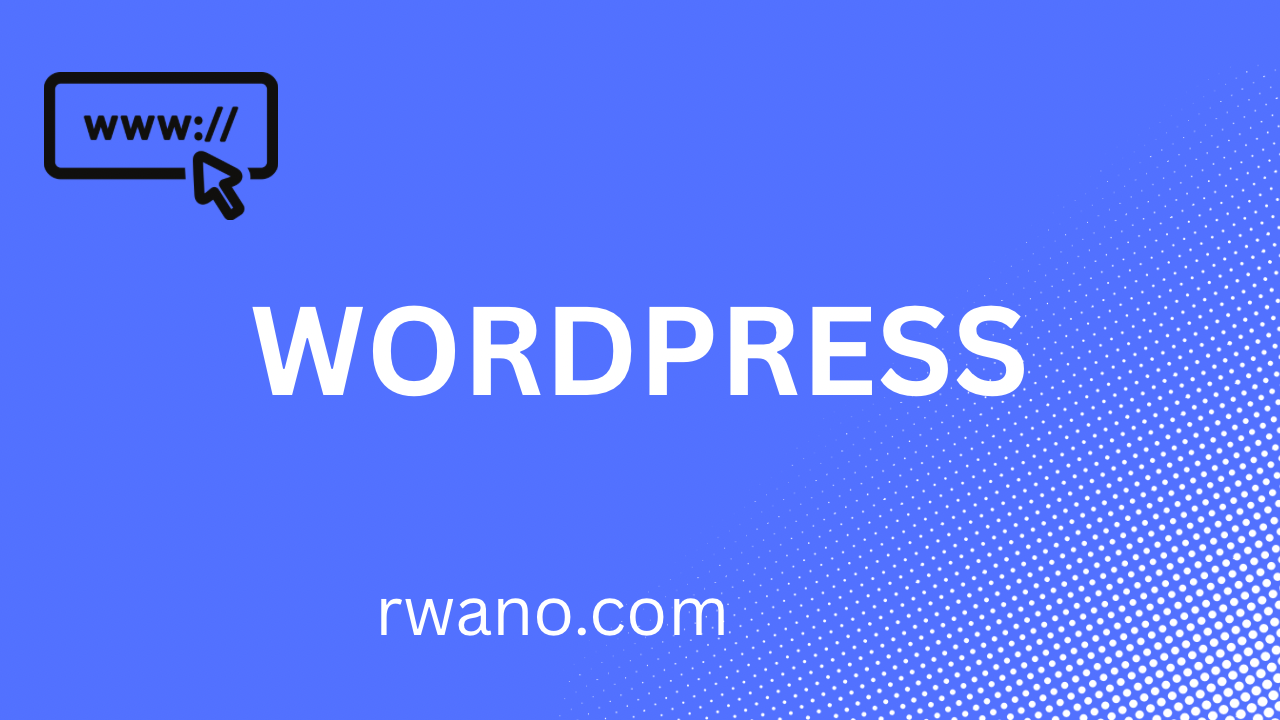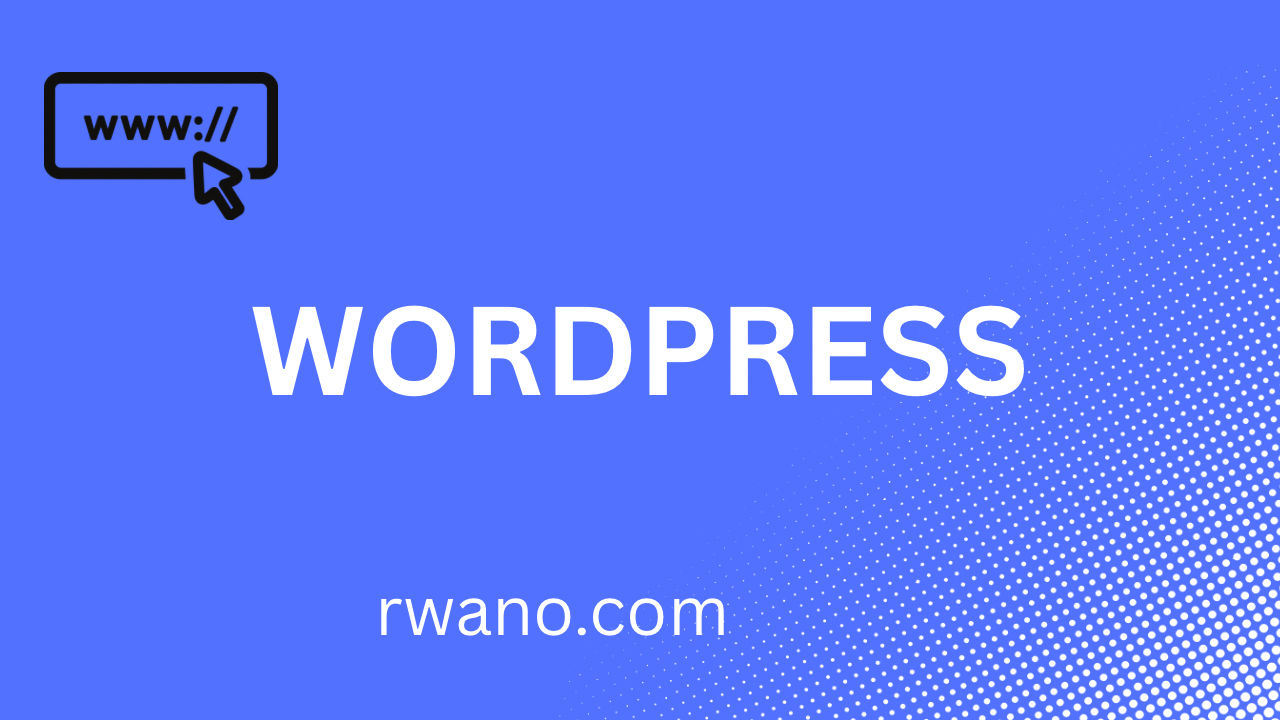Blogger vs WordPress: Which One Is Effective Blogging Platform In 2025
Both Blogger and WordPress are two widely used blogging platforms. WordPress is a clear leader, as it is used by over 43.3% of all websites!
Blogger, while still popular, holds a smaller market share than WordPress.
If you’re looking for a free platform that’s easy to use and monetize with AdSense, Blogger is a great choice. On the other hand, WordPress offers unlimited customization and monetization opportunities.
So, if you’re confused about choosing between Blogger and WordPress for your blog, this guide is for you. In this post, you’ll discover everything from ease of use to SEO benefits, pricing, support, etc.
Blogger vs WordPress Quick Comparison
Blogger is free and great for beginners, but it has limited customization options. WordPress is excellent for people who want better control of SEO and unlimited customization options.
| Feature | Blogger | WordPress.org |
|---|---|---|
| Cost | 100% free | WordPress software is free, but you must purchase a hosting plan and domain |
| Website storage space | Unlimited | Depends on your hosting plan |
| SEO | Less control over SEO | More control over SEO (because of plugins, SEO-friendly themes, etc.) |
| Free Themes | Yes | Yes |
| E-Commerce Compatibility | No | Yes |
| Ownership | Google owns your content | YOU own your content |
| Plugins | No | Yes |
| Setup | You only need your Google account | You need to install WordPress on your web host |
| Monetization Options | Extremely limited, as most people rely only on Google AdSense | Unlimited options |
| Limitations | You can create only up to 10 pages | Create unlimited pages |
Detailed Comparison of Blogger vs WordPress
Let’s dive into the key features of Blogger and WordPress to determine which blogging platform will best suit your needs in 2025.
1. WordPress Vs. Blogger: Which Is Best For Blogging?
If you’re a hobby blogger looking for simple and free options, go with Blogger. If you’re a professional who wants to build a profitable blog with tons of customization options, go for WordPress.
Blogger
If you’re looking for a hassle-free blogging experience and are new to the blogging world, go with Blogger. It’s free, and you can migrate from Blogger to WordPress once you gain experience.
Blogger is perfect for;
- Beginners: You don’t need any technical or coding skills
- Hobby bloggers: If you want to start a blog for fun or as a hobby project
- Personal bloggers: If you’re going to create a blog to share your ideas and thoughts with the world
- Students: If you’re a student who wants to improve your writing skills and build an online presence
In a nutshell, go with the Blogger platform if you want to avoid spending money or requiring advanced features.
WordPress
WordPress is best suited for those who want to build a highly customizable website. If you have some basic coding skills or prior blogging knowledge, you’ll love WordPress more than Blogger.
WordPress is perfect for;
- Full-time bloggers: If you’re looking to build a high-traffic website to make money online
- Small business owners: If you want to launch and grow an online store or small business to sell products
- Developers: If you’re going to create custom websites for different needs
- Non-profits: If you’re going to launch an NGO or non-profit site to raise funds for the needy
Simply put, WordPress.org is for you if you want complete control and scalability over your website.
2. Interface Comparison
Blogger is great for those who just want to start publishing content. WordPress offers more options, including a block editor for drag-and-drop building.
Interface of Blogger
Are you looking for a blogging platform that is easy to use and free? Blogger is an excellent choice for you.
Blogger has a simple, clean interface that provides an overview of posts, pages, comments, and site statistics. 
The dashboard allows you to easily create and publish posts and respond to all the comments. Its “Stats” section helps you track your blog’s analytics to quickly discover where your audiences are coming from.
Customization options are limited compared to WordPress. You can edit the colors and fonts to some extent, but that’s all you can do.
Interface of WordPress
Do you want a blogging platform with a user-friendly interface and unlimited customization? WordPress.org is for you.
Just know WordPress interface offers many more options than Blogger’s. You can do a lot more things, such as creating posts, managing comments, settings, plugins, appearance, etc.
Above all, WordPress uses a block editor (aka Gutenberg editor) that allows you to create and style content using content blocks.
Using WordPress, you can add almost any block to add paragraphs, images, headings, lists, FAQs, videos, and more.
WordPress lets you modify your blog pages, layouts, colors, and fonts through themes. If you have some coding skills, you can edit the CSS and HTML code to make ANY design changes to your WordPress site.
Overall, WordPress’s interface offers unlimited customizations and features, whereas Blogger provides a simple and easy-to-use dashboard.
3. WordPress Vs. Blogger: Which One is Best For SEO?
SEO (Search Engine Optimization) is the process of making your website appear HIGHER in search engines like Google. SEO is an effective and free way to attract high-quality visitors without relying on paid or social media ads.
WordPress For SEO
When it comes to SEO, WordPress is the leader. By default, WordPress is search-friendly and offers many SEO features out of the box.
Some of the key benefits of using WordPress for SEO include;
- Access to SEO plugins: You can use many SEO plugins, such as Rank Math, Yoast, SEO framework, Squirrly, etc., to improve your site’s SEO.
- The ability to manage page speed:Many plugins and themes are available on the WordPress directory that can help you boost your website page loading times (which ultimately improve your site’s SEO, as page speed impacts rankings).
- Technical SEO: With WordPress, you can implement and manage advanced SEO techniques such as schema markup, XML sitemaps, and robots.txt files.
All in all, WordPress offers almost everything you need to make your website appear first in search rankings.
Blogger For SEO
With Blogger, you can do basic things to improve your blog’s rankings in search engines like Google and Bing, including;
- Adding keywords to your posts and pages
- Making your images searchable
- The ability to hide private pages from search engines
- The ability to tell search engines not to follow specific links and more
That being said, Blogger is inferior to WordPress in terms of SEO capabilities. Unlike WordPress, Blogger does not offer plugins that can help you with SEO features.
What’s the bottom line? If you want your blog or website to appear at the top of Google and SEO is a top priority, go with WordPress.
4. Plugins: Which platform offers better integrations?
Plugins are simply apps that allow you to add EXTRA functionality to your blog or website. With plugins, you can add any functionality, from improving your blog’s SEO to adding contact forms, online shops, email signup forms, etc.
WordPress
The BIGGEST benefit of using WordPress is plugins.
Plugins differentiate the functionality and capabilities of Blogger and WordPress. A plugin can help you extend the functions of a WordPress site without making any changes to its core code.
Did you know WordPress currently provides over 59,000 FREE plugins in its directory? You can find hundreds (if not thousands) more from third-party vendors.
Here are some of the key benefits of WordPress plugins;
- Plugins allow you to customize everything from contact forms to social media integration.
- They can help you improve your website’s SEO, as you can use SEO-friendly plugins like Rank Math, XML sitemaps, Broken Link Checker, etc.
- Even if you don’t have coding skills, you can still add advanced functionalities like online stores, sell memberships, process payments, etc, with the help of plugins.
- They can help you improve your site’s security and take care of website backups.
The only drawback is that using heavy-loading plugins (or installing too many plugins) can drastically reduce your website’s loading times. If possible, limit plugin usage to under 15!
Blogger
Unlike the WordPress.org platform, Blogger doesn’t provide plugins.
Yes, you can use widgets on Blogger, but they have limited capabilities. Using Blogger widgets, you can do basic things like adding social media feeds, showing popular posts or analytics.
Blogger is primarily known for its simplicity; most customization options are directly included within the platform. So, Blogger can be suitable for those who want to start personal or hobby blogs rather than those who want to build a scalable and high-traffic website.
Overall, WordPress offers better integrations and functionality than the Blogger platform.
5. Templates Gallery
Templates save you a lot of time and money. They’re pre-made layouts that allow you to display your blog’s content, including text, images, media, etc.
Blogger

Blogger offers a limited number of free and pre-designed templates to help you start a basic blog or website.
However, you can’t make too many changes to the layouts and customize your website’s design beyond what the theme offers.
Besides the official templates offered by the Blogger, many third-party platforms, like Sora Templates, B Templates, etc., provide FREE templates and website layouts for the Blogger platform.
WordPress
Unlike Blogger, WordPress.org offers a massive template gallery in its WordPress theme directory, where you can find over 12,000 free themes to customize your WordPress blog.

Almost all the WordPress themes (including free and paid) allow you to customize your website however you want.
You can also design your site using plugins and pre-made website templates. With WordPress.org, customization opportunities are unlimited. Whether you want to create simple blogs, photography websites, portfolio sites, or eCommerce stores, the WordPress platform offers appealing options.
Apart from the official WordPress directory, you can find thousands of free and premium themes from third-party theme developers like Template Monster, ThemeForest, Envato Elements, etc.
Also, most WordPress themes offer support so that customization will be much easier on WordPress than on the Blogger platform.
6. Blogger Vs WordPress eCommerce Comparison
You can’t create an online shop or eCommerce store with Blogger. WordPress, on the other hand, offers powerful plugins like WooCommerce to create an online store easily.
Blogger
Blogger does NOT provide eCommerce functionality. It offers only the basic features that allow you to add;
- Links to external product pages
- Widgets related to Google Business, Google Reviews, etc
- Product buttons
- Other basic website elements like product search buttons
You can’t offer payment getaways to process payments or manage product inventory with the Blogger platform.
If you’re looking to build an online store or eCommerce website, Blogger is NOT suitable. However, you can use third-party tools like Ecwid to add an online store to your Blogger site.
WordPress
Millions of people use WordPress for its ability to run an online store smoothly.
The best part about WordPress is that you’ll get access to powerful plugins like WooCommerce that help you completely transform your basic website into a full-fledged eCommerce store.
With the help of the WooCommerce plugin, you can;
- Sell everything from simple products to customizable product bundles, subscriptions, etc.
- Easily manage products, inventory, and shipping
- Process payments seamlessly
- Integrate it with hundreds of marketing tools
- Access built-in metrics to track key metrics like sales, orders, abandoned carts, etc.
However, you might require technical knowledge to set up your eCommerce store on WordPress.org.
The bottom line is that WordPress makes it easier to create and run an eCommerce store than the Blogger platform.
7. Pricing
Blogger is 100% free to use. You just need a free Google account to set up a Blogspot blog. WordPress software is free, but you’ll need to pay for web hosting ($30 to $100+ a year, depending on the web host) and a domain name (around $10 per year).
Blogger
| Feature | Cost |
|---|---|
| Software Cost | Free |
| Domain Name | Free (Blogspot subdomain) |
| Web Hosting | It is not required |
| Themes | Free (you can also purchase premium themes, and the pricing starts at $10) |
| Storage | Free, as Google provides storage |
| Total Cost | Mostly free! |
WordPress
| Feature | Cost |
|---|---|
| Software Cost | Free |
| Domain Name | Approx. $10-20/year |
| Web Hosting | It depends on the web host (approx. $1 to 20+/month) |
| Themes | Free (you can also purchase premium themes, and the pricing starting at $10) |
| Storage | Depends on your hosting plan |
| Total Cost | Costs ~$3 to 20+/month |
8. Blogger vs WordPress Support
Blogger offers an official Blogger Help Center, which includes a Blogger Help Community. WordPress relies on forums where you can ask and discuss everything related to WordPress. In addition, you can rely on paid support options for web hosting, themes, plugin support, etc.
Blogger

Google offers built-in help articles and a Blogger community forum for the Blogger platform.
You won’t get dedicated technical support since it’s a free platform. If you run into any major technical issues related to your blog, you’re on your own. You should use YouTube tutorials or Google’s help center to find information.
However, most beginners, who often need help with basic issues (like uploading images, indexing issues, etc.), can easily find solutions online.
WordPress

Compared to the Blogger platform, WordPress offers extensive online resources, forums, and tutorials — thanks to the massive WordPress community.
It offers a dedicated WordPress forum where you can get community-based support for everything from installation to advanced technical issues. In addition to WordPress support, the themes, plugins, and web hosting you use can also provide 24/7 support assistance.
In a nutshell, WordPress is superior to Blogger when it comes to customer support.
Pros And Cons Blogger vs WordPress
Blogger is a simple, free, and reliable platform with limited customization options. WordPress is a powerful, flexible, and scalable CMS but requires self-hosting. Here’s a breakdown of their pros and cons.
Pros And Cons of Blogger
| Blogger Pros | Blogger Cons |
|---|---|
| Totally free | Google can take down your blog if you violate their rules |
| Extremely easy to use, even for beginners | Limited customization options |
| It is reliable and secure, as Google runs it | You can’t use plugins |
| There is no need to pay for domain or web hosting | Not eCommerce friendly |
| You can monetize with Google AdSense | Fewer themes and not ideal for BIG websites |
| Free SSL certificates, free website templates, etc. | Limited support |
| Blogger is great for beginners or those who want to improve their writing skills with blogging | Lack of plugins |
Pros And Cons of WordPress
| WordPress Pros | WordPress Cons |
|---|---|
| It gives you full control over your sites | You need to pay for hosting & domain |
| Powerful for SEO, as it offers lots of SEO-friendly themes and plugins | There’s a learning curve |
| 100% customizable from header to footer | Security vulnerabilities depend on the themes and plugins you use |
| eCommerce options are available | Requires regular maintenance (updates, backups, etc.) |
| It has a larger community of users to help you with anything related to WordPress | Page speed is an issue for most users |
| User management is far superior and easier than Blogger |
My Verdict: Which is better: Blogger or WordPress?
Both Blogger and WordPress are excellent platforms for starting a blog, but they cater to different needs. Blogger is great for beginners who want an easy-to-use platform. However, it has limited customization and monetization options.
On the other hand, WordPress gives you MORE control and unlimited customization through themes and plugins. So, if you want to build a site and make it BIGGER in terms of traffic and sales – choose WordPress. You need to purchase hosting and domain with WordPress!
Do you have any more questions on the difference between Blogger and WordPress? Let us know in the comments.
FAQs | Blogger versus WordPress
Here are a few questions related to Blogger and WordPress platforms.
Is Blogger better than WordPress?
Blogger is better for beginners, as it offers a user-friendly and free platform backed by Google.
Does anyone still use Blogger?
Yes, millions of people still use the Blogger platform to create new blogs every year.
Is Blogger good for SEO?
Blogger is suitable for most beginners, as it has built-in SEO features. However, you’ll find MORE SEO features in WordPress.
Can I use Blogger with WordPress?
No, you can’t, as they are different blogging platforms. However, you can move your content from Blogger to WordPress.org anytime you want.
Do people still use WordPress for blogging?
Yes, according to W3Techs, WordPress is still the world’s number one CMS (Content Management System), used by 43.4% of all websites.
Is WordPress free for bloggers?
WordPress.org software is free to use, but you’ll need separate web hosting and a domain to host your website. WordPress.com, on the other hand, is free but offers limited features.
Is Blogger owned by Google?
Yes. Blogger was initially developed by Pyra Labs in 1999 and acquired by Google in 2003.
Does Blogger own my content?
Yes, Google owns Blogger and has complete control over your content. Violations of Google rules could result in content and website removal.
Do I own my blog on WordPress?
Yes, if you’re using the self-hosted WordPress.org platform, you’ll have complete control over your site.
What is the difference between Blogger and WordPress?
Blogger is a free, user-friendly platform owned by Google with limited customization options. In contrast, WordPress offers extensive flexibility with a wide range of plugins and advanced SEO capabilities.
Share this Blog:
- Click to share on Facebook (Opens in new window) Facebook
- Click to share on X (Opens in new window) X
- Click to print (Opens in new window) Print
- Click to email a link to a friend (Opens in new window) Email
- Click to share on Pinterest (Opens in new window) Pinterest
- Click to share on Reddit (Opens in new window) Reddit
- Click to share on Telegram (Opens in new window) Telegram
- Click to share on WhatsApp (Opens in new window) WhatsApp